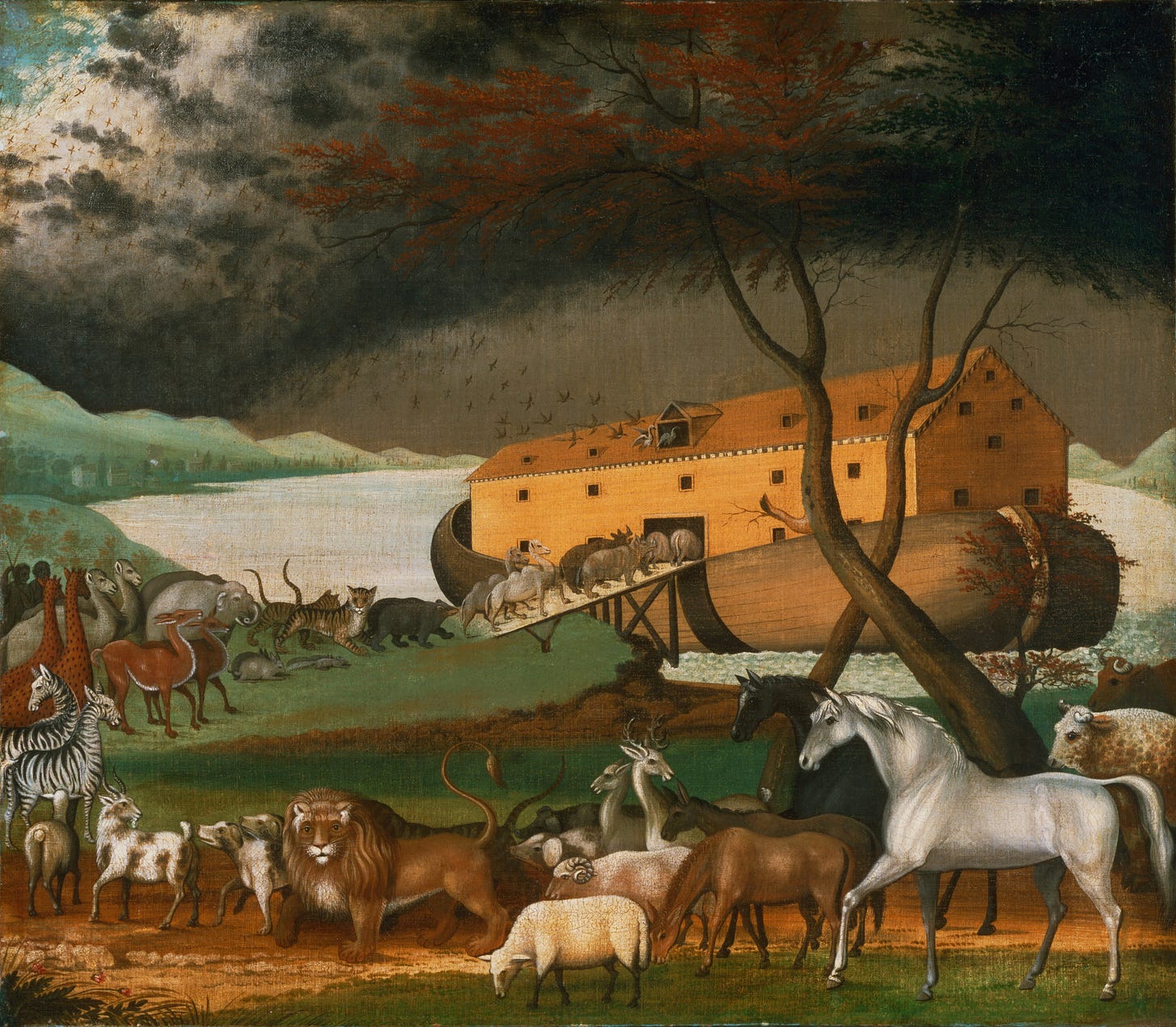Best Lectures on Protestant Fundamentalism, Ever
The late great George Walsh strikes again
[Lecture #2 is back up. Sorry for the strangeness.]
My project to bring the lost George Walsh recordings to the world continues. With the technical assistance of the Salem Center, I offer you Walsh’s two grand lectures on Protestant Fundamentalism.
Have you ever wondered, “What exactly do Protestant fundamentalists actually think?”
Have you ever wondered, “Why can’t an historian of thought analyze Protestant fundamentalism with the same rigor routinely paid to Aristotelianism, Kantianism, Marxism, or Rawlsianism?”
Either way, Walsh has you covered.
A little extra background: Early in Lecture #1, Walsh explains that modern Protestant fundamentalism, shockingly, began at the Princeton Theological Seminary - and Wikipedia backs him up:
The seminary was made famous during the 19th and early 20th centuries for its defense of Calvinistic Presbyterianism, a tradition that became known as Princeton Theology and greatly influenced Evangelicalism during the period. Some of the institution's figures active in this movement included Charles Hodge, B.B. Warfield, J. Gresham Machen, and Geerhardus Vos…
In response to the increasing influence of theological liberalism in the 1920s and the Fundamentalist–Modernist Controversy at the institution, several theologians left to form the Westminster Theological Seminary under the leadership of J. Gresham Machen. The college was later the center of the Fundamentalist–Modernist Controversy of the 1920s and 1930s.[16] In 1929, the seminary was reorganized along modernist lines, and in response, Machen, along with three of his colleagues: Oswald T. Allis, Robert Dick Wilson and Cornelius Van Til, resigned, with Machen, Allis and Wilson founding Westminster Theological Seminary in Glenside, Pennsylvania.
Last summer, when I was lecturing for the John Locke Institute at the Princeton Theological Seminary, I thought of Walsh’s lectures on Protestant fundamentalism every day. How very strange it was to walk the halls where the founders of these academically understudied yet practically potent ideas once walked.
Whatever your views on Protestant fundamentalism - and fundamentalism in general - I think you’ll be delighted by these lectures. There are some thinkers that you proverbially “can’t stay mad at.” Walsh is in the superior category of thinkers that you “can’t get mad at in the first place.” So learned, so funny, so wise. I only met him once at the age of 18 - and I still count myself lucky.
And now, the main event. Here’s Lecture #1: Theology and Epistemology.
And here’s Lecture #2: Ethics and Politics.




"How very strange it was to walk the halls where the founders of these academically understudied yet practically potent ideas once walked."
I wouldn't say that the work of the fundamentalists are necessarily understudied. George Marsden has written some of the best work on this. His _Fundamentalism and American Culture_ is a fairly extensive academic work on this. He also wrote a follow-up popular work _Understanding Fundamentalism and Evangelicalism_. His _ The Soul of the American University: From Protestant Establishment to Established Nonbelief_ is also a worthwhile treatment of the secularization of universities around the turn of the 20th century.
D.G. Hart's _Defending the Faith: J. Gresham Machen and the Crisis of Conservative Protestantism in Modern America_ is an excellent treatment as well. If you want to learn. more about the difference between fundamentalism and evangelicalism, you do worse than his _Deconstructing Evangelicalism_. His work on the history of Calvinism and the tension among conservative protestants as it relates to politics are great reads as well.
For a broader portrait, Bebbington's _Evangelicalism in Modern Britain: A History from the 1730s to the 1980s_.
Mark Roll is another historian who has addressed evangelicalism and the modernist controversies. His work on the Civil War as a theological crisis is brilliant.
If you want a more nuanced picture of the creationist movement, I would strongly recommend Edward Larson's _Summer of the gods_ (a treatment of the Scope's trial - if your understanding of this comes from commentary by Menken or from watching Inherit the wind, then this book is essential reading). Livingstone's _Darwin's forgotten defenders_ is a great treatment of how Darwin's ideas were treated by early fundamentalists - it is far more nuanced than most people realize. Ron Numbers has also written on the rise of the creationism movement - the conventional wisdom of how this movement came about contains a lot of myth.
What happened to Lecture II?